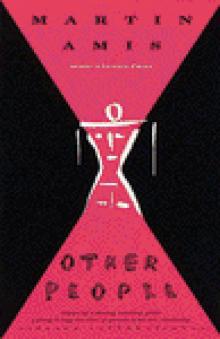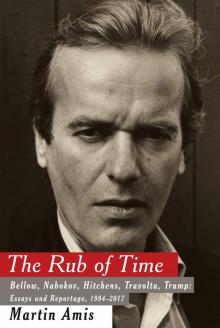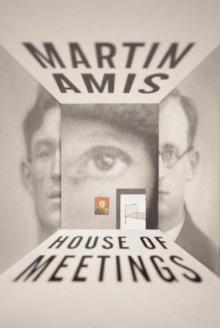- Home
- Martin Amis
The Rub of Time Page 4
The Rub of Time Read online
Page 4
*
“I am an American, Chicago born,” Augie March says, at the outset. It could have gone, “I am a Russian, Quebec born—and moved to Chicago at the age of nine.” And Bellow is a Russian, a Tolstoy, in his purity and amplitude. Which brings us to another ghost from St. Petersburg: Vladimir Nabokov. An earnest admirer of Pnin (1957) and Lolita (1955), Bellow has nonetheless always felt that Nabokov was artistically weakened by entitlement (the Jamesian flaw); and it is a sense of social otherness, certainly, that isolates Ada (1969), a novel in which all common ground with the reader simply disappears. Nabokov was not an immigrant (“Don’t carry on like a goddamn immigrant,” says an older brother as Herzog weeps at their father’s funeral): Nabokov remained an émigré. He couldn’t become an American; he was—however delightfully—slumming it over there. Bellow as a child, to his immense advantage, knew what slums really were: they presented the widest range of human feelings, but also directed the gaze upward, to the transcendent.
Some years ago I had a curious conversation with a notably prolific novelist who had just finished rereading The Adventures of Augie March (1953). We talked about the book; then he thought he was changing the subject when he said, “I went into my study today—and there was nothing. Not a phrase, not a word. I thought, It’s all gone.” I said, “Don’t worry, it’s not you. It’s Augie March.” Because the same thing had happened to me. That’s what Bellow can do to you, with his burning, streaming prose: he can make you feel that all the phrases, all the words, are exclusively his. At the same time, we share Augie’s utopian elation when, reduced almost to nonentity in Mexico (c. 1940), he glimpses none other than Leon Trotsky.
I believe what it was about him that stirred me up was the instant impression he gave—no matter about the old heap he rode in or the peculiarity of his retinue—of navigation by the great stars, of the highest considerations, of being fit to speak the most important human words and universal terms. When you are as reduced to a different kind of navigation from this high starry kind as I was and are only sculling on the shallow bay, crawling from one clam-rake to the next, it’s stirring to have a glimpse of deep-water greatness. And, even more than an established, an exiled greatness, because the exile was a sign to me of persistence at the highest things.
The Atlantic Monthly 2003
Postscript. “Multitudinous facetiousness,” as a characterization of the prose of Herman Melville, is not perhaps gravely misleading; but it is gravely inadequate. After an interval of almost half a century I took another look at Moby-Dick, and spent a month of last summer slowly shaking my head in gratitude and awe. Technically it is a unique achievement, because about four-fifths of it is padding (it even outpads Don Quixote). In Melville, though, the padding is necessary ballast. Moby-Dick would be a strong contender for the Great American Novel—but there isn’t much America in it, and there are no women (even the hunted whales are, without exception, bulls)—and who can give us a national panorama without America and without women? At the same time this novel is almost disconcertingly full of love: if Augie March captures the American soul, then Moby-Dick captures the American heart. The warmth of Melville’s generosity flows into the reader, and the reader responds and reciprocates. This lends yet more sadness to the contemplation of his literary arc. His dates are 1819–1891; Moby-Dick appeared, and then disappeared, in 1851; he was more or less out of print by the age of forty (and reduced to working at the New York Custom House). Thereafter he drew back into poetry (like Thomas Hardy); the Melville Revival began exactly a century after his birth….Incidentally, the “notably prolific novelist” who was rendered wordless by Augie March was Salman Rushdie, who soon recovered.
Politics 1
The Republican Party in 2011: Iowa
“Oops” sounds even worse—even more sheepish and abject—if you say it with a Texan accent: something like “Ewps.” It was certainly an arresting moment, and not just for Governor Rick Perry and his numerous handlers, sponsors, investors, and depositors. When was the last time a would-be emperor denuded himself in the space of a single syllable? Yet it also pointed to more general confusions.
Over the course of about a generation, it has come to seem that while the Democratic Party represents the American mind, the Republican Party represents not its heart, and not its soul, but its gut. The question is as old as democracy: should the highest office go to the most intellectually able candidate, or to the most temperamentally “normative” (other words for normative include unexceptional and mediocre)? In the rest of the developed world, the contest between brain and bowel was long ago resolved in favor of brain. In America the dispute still splits the nation. Things are slightly different, and more visceral, in periods of crisis. Nine years ago, if you remember, the populace looked on in compliant silence as the president avowedly “went with his gut” into Iraq.
Until very recently it looked as though the GOP had been blessed with the most intensely average candidate of all time. Rick “Crotch” Perry (the nickname derived from his habit of readjusting his blue jeans) was a shoeless farm boy from an old Rebel family, a straight-C student and Aggie yell leader, a devout Air Force pilot who rose to become the potent governor of a major state.
All right, he speaks like a drunkard or a stroke victim (for example, his attempt to say “Joe Arpaio” came out as “Joe Aroppehyeh”)—but so did George W. Bush. All right, he used to hunt deer at a game reserve called Niggerhead—but he tastefully avoided that other Texan beauty spot, Dead Nigger Draw. All right, he might be prone to errors of fact—but don’t we feel that it’s somehow quite manly to make mistakes? Here was a gut candidate with a barrel chest. Nothing could possibly go wrong.
But now it is time to meet the people. This, we’re still told, is what presidential campaigns are all about. So on a cold and frosty morning the car trundles east out of Des Moines, across the North Skunk River, and into the great tray of the Iowan plain. The destination is Marshalltown. You go past Casey’s General Store and the Git ’N Go gas station, past signs saying SNOWBLOWER SALE and MASONIC TEMPLE, past the fuming hulks of vague industrial shapes in the misty distance, till you reach the modest community center tucked in behind the railway tracks and the rusted-over rolling stock.
I took my seat among about a hundred windbreakers and woolly hats, in an atmosphere of friendly inclusiveness, and passed the time with the complimentary pamphlet The Ron Paul Family Cookbook—twenty-eight pages of recipes “to warm your kitchen and your heart.” Why, here we have the Razzle Bo-Dazzle Tenderloin and Mama’s Peanut Butter Cookies. As ten o’clock neared, I turned to the biblical tags, and then to Carol Paul’s family newsletter, where I caught up with the huge Paul dynasty and the doings of Rand, John David, Collin, Caylee Joy, Kelly, Lori, Valori…
Glowingly introduced, the candidate takes the stage: Mr. Ron Paul, seventy-six, lean-faced and thin-lipped under a silvery comb-over, and with that endearingly excitable crack in his voice and his laugh. Fiscally responsible, Ron is an isolationist and a constitutional fundamentalist; he is also “a pro-life libertarian”—which means that he favors minimal state intervention except when it comes to pregnant women.
All this has its eccentric side, but you could reasonably claim that the community center, that day, showed us American democracy at something close to its best: an uncynical candidate affably bonding with his base. Paul told the constituents that their votes, in the coming caucuses, would be “magnified a thousandfold,” which is true in the anomalous case of Iowa. Yet there’s an inescapable sense that the back-and-forth of the parish pump (“We have time for one last question”) is becoming a sideshow.
“Meeting people is bullshit,” said a prominent politician who, unsurprisingly, wishes to remain anonymous—and he said it twenty years ago. Similarly, it now seems that the community center is bullshit too; swinging by the coffee shop or the diner is bullshit; pressing the flesh is bullshit. An old friend of mine, a veteran of polls and primaries whom I will call the Insider, assures me that ads, too, are bullshit. “They haven’t mattered at all,” he says. “Perry has spent—what?—$5 million, Huntsman, $3 million, to no visible effect. Ads only make a difference if you go late and nasty.”
So what isn’t bullshit? The debates matter, the media matters—but mainly as they relate to the “narrative” associated with each particular candidate. And, as in other walks of public life, the narrative is often only one word long.
Take Mitt Romney. The narrative on Mitt is “flip-flopper.” He has a murky past, what with his health-care plan (anti-individualist), his environmental vigilance (anti–job creation), and above all his laxity on abortion (antilife). The stigma of Mormonism—the temple underpants, the recruitment and “praying in” of the dead, among other inanities—costs him surprisingly and perhaps scandalously little (no more than two or three points). He is an outstandingly proficient technocrat; he has electability; he alone has presidentiality. So why does he keep bumping into his 25 percent glass ceiling?
There is something strangely semihuman about Mitt. To enlarge on a metaphor first articulated by the great Clive James, Romney looks as though he went to the dentist one afternoon, and came out with his head capped. With Mitt, we run up against what is known as the “dog food” problem. “The dog just won’t eat the dog food”—and nobody knows why. But make no mistake, the Insider warns: “Gingrich is ahead in the polls. Romney is still the front runner. The White House thinks it’s Romney—though of course they’re hoping for Gingrich. Obama is crushing Gingrich in Florida.”
Who else is hoping for Gingrich? And what are people of even moderate good taste supposed to make of Newt and Newt’s surge? He is hoping to change the Gingrich narrative to “redemption,” but for now he is stuck on “insider” (or “provenly corru
pt insider,” if you prefer). Newt has been around the Capitol so long that you could see him in some old sandal movie, like Quo Vadis (1951), limply reclining in his toga between Peter Ustinov and Deborah Kerr.
A couple of weeks ago we learned that Gingrich was doing bookstore signing sessions on the campaign trail—alongside Callista, who was pushing Sweet Land of Liberty, a story about Ellis the Elephant. Well, said a source in The New York Times, he “monetized” his years as speaker (as a consultant “historian” for Freddie Mac, and so on), why wouldn’t he monetize his jump in the numbers? “I believe in free enterprise,” Newt explained (at least he didn’t say he “happened” to believe in it), “and I think it’s okay to make money.” Yes, but making money cost him a $300,000 fine, and a scathing reprimand, fifteen years ago. Gingrich is not just an abysmal vulgarian; he is also a serial adulterer who, while having an affair with a staffer, persecuted Bill Clinton for the identical offense.
“Before you can win,” says the Insider, “you have to be humiliated. Right now, Romney is being humiliated. Then things will change. Remember, Newt’s negatives are an all-you-can-eat buffet.”
On, then, to the debate, at the Drake campus in Des Moines. The six candidates stand at lecterns ribbed with bars of white light, as if in the control bay of the Trekkie starship, and ready to beam down to planet Earth. Taken together, they are quite a crew. In two weeks’ time, the Iowa Caucus, like a death panel, will give its verdict. Only three will live.
The narrative on the absent Jon Huntsman is “absent.” So apart from the two likely finalists, chameleonic Romney and avaricious Gingrich, we were left with Rick Santorum (“work in progress”), Ron Paul (“shame he’s so elderly”), the gorgeous corpse of Rick Perry (“can only count up to two”), and the equally decorative, and equally discredited, Michele Bachmann (“very creepy husband”). Much as expected, the debate was a dismal anticlimax. In the only high point, Newt showed his dialectical skills, turning a painful question about marital fidelity—by way of spousal oaths and oaths of office—into a disquisition on the Federal Reserve.
There was a specter at the feast. Our Banquo was of course the sorely missed Herman Cain—Cain, who hoped to apply the lessons he absorbed at Burger King and Godfather’s Pizza to the management of the free world. And we recall, with some incredulity, that the flamboyantly ridiculous Herman was once leader of the pack. How much clearer does it need to be? The flip-flopper in chief, the most hopeless ditherer and button puncher of them all, is the poor old Republican electorate.
And this is perfectly understandable. To see how far the GOP has traveled in recent years, it is necessary only to turn to the much-saluted figure of Ronald Reagan. As governor of California, Reagan raised taxes, expanded the number of state employees, defended gay rights, and passed a conspicuously liberal law on abortion; as president, he closed corporate loopholes and amnestied illegal aliens. In short, Reagan would these days be considered a pariah.
“All the ‘isms’ are ‘wasms,’ ” said Tony Blair, quite a while ago, affirming the end of the age of ideology. With its Taxpayer Protection Pledge, the patriarchal, philoprogenitive, science-averse, fact-averse, antigovernance government-in-waiting has imprisoned itself in dogma. The gut party is all tangled up, both within and without. What we are now hearing is little more than the sullen grumble of its stomach, and the fitful rattle of its chains.
Newsweek 2011
The Republican Party in 2012: Tampa, Florida
“How much,” Josef Stalin once asked, “does the Soviet Union weigh?” He was hoping to instill in his terrified advisers a sense of their country’s rightful place in the world: i.e., number one. For those who come to the United States to live as opposed to visit (me, for instance), it’s the first thing that strikes you: the astronomical mass of America. You ask yourself, how much does America weigh? And soon you are wondering about its place in the world (number one), and about the durability of its predominance.
And what is the tonnage of its political machinery? Arriving in Tampa, and making your way to the hub of the Republican National Committee, you initially confront the great humorless grid of American “security.” The roped-off streets, the menacingly geostationary helicopters, the (false) rumors of drones in the stratosphere, the National Guardsmen, the three thousand cops from all over Florida, the men with SHERIFF or SECRET SERVICE stamped on their bulletproof aprons, and the operatives who are even more secret than that: they wear (i) a twirly plastic tube in the ear and (ii) an adamantine scowl. That’s what security people are, 99.9 percent of the time: professional scowlers. And soon there will be X-rays and pat-downs, and the sort of lines that would make you groan at LAX or JFK.
First, the colossal edifice of the Convention Center. In the Google Media Lounge I found myself transfixed by a valiant multitasker who was power-walking on an exercise machine while apparently shooting a film about his own computer. And in the gaping atrium everyone who wasn’t yelling out greetings stood hunched in tense communion with their BlackBerrys or their iPhones. On the second floor the networks were carving the hangar-like space into exclusive nooks and crannies. The scale was gargantuan, like a De Quinceyan opium vision of infinity.
Thence, by shuttle bus, to the Tampa Bay Times Forum, the stadium-size amphitheater soon to be graced by the stars of the GOP, their innumerable delegates, and fifteen thousand representatives of the media. Up on stage, long-haired middle-aged men twanged out the kind of patriotic folk music we might call jingobilly. Filling the giant screens, typically, were clips of soldiers on airfields moving in heroic slow motion, as in an agonizing dream of effort and retardation. And the platforms were scattered with the impedimenta of the television crews, arc lights, gantries, metal trunks, and beyond, ankle-deep in a snake pit of cables, hovered vaguely familiar figures, wearing slightly sickly smiles—household faces, under a light coating of Skippy.
That TV anchors strongly resemble politicians—the otherworldly glow, the dense hairdos, the makeup—is, as Marxists say, no accident. They are communicators, above all. And what exactly was communicated, down on the Gulf of Mexico, among the megatons of tackle and clobber, the silly hats, the glut of money (thanks to the super PACs “there is no airtime left to buy”), the sweating, sneezing journos (alternately drenched by the cloudbursts, steamed by the humidity, and frozen by the arctic AC), and the succession of tub thumpers and cue-card readers on the podium—what ideas were voiced, what policies adumbrated, what philosophies explored?
The Republican dialectic, in 2012, can be summarized as follows. Obama might or might not have inherited a difficult situation (and Democrats, at least, will remember George W. Bush’s historic warning in 2008: “This sucker could go down”); but he hasn’t fixed it, so let’s try Romney, who’s a businessman, not a socialist. This lone notion was pressed home with repetition, tautology, platitude, redundancy—and then more repetition.
Madamic good ole girls in scarlet ensembles, peanut-faced glozers in ambassadorial suits and ties, puns, rhymes, Tinkertoy wordplay (“Give me liberty—not gimme, gimme, gimme”), alliteration, iteration, my mom said to me, started a small business, almighty God is the truth of all we have, inherit our hopes and dreams, my daddy said to me, started a small business—and all of this seconded by the brain-dead, couch-potato tweets that looped the hall in illuminated script: “I’m so proud to be a Republican,” “The Bush family is so awesome,” “Look at all the Olympians on stage for Romney. SO COOL!” And the Party was partying, all bounce and yelp and whoop. By the second day I felt as sour as Bill Murray, mingling for the thousandth time with the capering revelers (“Pick out your partner and join in the fun”) on Gobbler’s Knob.
Once a night, on average, the grim torpor briefly lifted. With Ann Romney, the interest was human interest. Here was a woman who had submitted, no doubt with qualms, to the inevitable falsity of political display; and you warmed to her warmth, even as you realized that much of her speech, with its emphasis on “working moms,” “the couple who want another child” but can’t afford it, and so on, was plainly disingenuous. The strugglers she claimed to champion (and it was allegedly tough for the basement-dwelling Romneys, back in the day) are the very people that her husband, if elected, will do nothing for. You realized, too, that Ann won’t help the GOP’s desperate quest for diversity: she looks like the worthy winner of Miss Dairy Queen 1970. “Tonight I want to talk to you about love,” Ann had said. And then Governor Christie waddled on. Chris wanted to talk about Chris, though he did what he could for the cause: his mom told him, apparently, that love was bull and what you needed was respect.

 Other People
Other People The Zone of Interest
The Zone of Interest The Rub of Time: Bellow, Nabokov, Hitchens, Travolta, Trump
The Rub of Time: Bellow, Nabokov, Hitchens, Travolta, Trump Koba the Dread
Koba the Dread Success
Success London Fields
London Fields Heavy Water: And Other Stories
Heavy Water: And Other Stories Money
Money The Moronic Inferno and Other Visits to America
The Moronic Inferno and Other Visits to America Yellow Dog
Yellow Dog Time's Arrow
Time's Arrow Experience: A Memoir
Experience: A Memoir Einstein's Monsters
Einstein's Monsters The Pregnant Widow
The Pregnant Widow House of Meetings
House of Meetings The Information
The Information Lionel Asbo: State of England
Lionel Asbo: State of England Lionel Asbo
Lionel Asbo Heavy Water and Other Stories
Heavy Water and Other Stories Night Train
Night Train Heavy Water
Heavy Water The War Against Cliche: Essays and Reviews 1971-2000 (Vintage International)
The War Against Cliche: Essays and Reviews 1971-2000 (Vintage International)